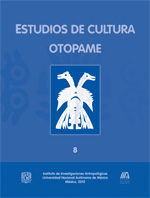A god without frontiers and the Mexican dream: migration, tourism and pentecostalism in a hñähñu community
Main Article Content
Abstract
Since 2004, thousands of tourists have participated in the Caminata Nocturna, or Night Hike, a simulation of the experience of crossing the US-Mexico border as an undocumented immigrant. Far more than entertainment, the reenactment is a community effort to slow the wave of migration that has transformed the social life of El Alberto, a hñähñu community in the municipality of Ixmiquilpan, Hidalgo. The members of El Alberto carry out that “caminata” in the hope of achieving the “dream” of a sustainable future in Mexico. However, what tourists do not realize is that approximately half of those who help to stage the “caminata” are Pentecostals, and religious change is deeply related to US migration. Submitting themselves to the authority of a God who “has no borders”, these evangelical Protestants travel to the United States with a sense of divine protection. Faced with the impossible choice between risking their lives at the northern border and enduring an uncertain future in Mexico, the members of El Alberto strengthen themselves both in their faith and in their ethnic heritage as they demand two fundamental rights: the right to emigrate in search of work, and the right to live a dignified and sustainable life in their place of origin.

